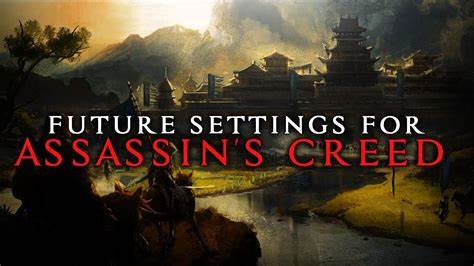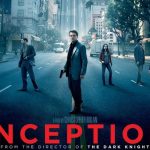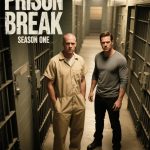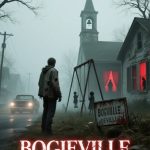Assassin’s Creed (2016) – Unlock the Past, Change the Future

Assassin’s Creed (2016) – Unlock the Past, Change the Future
Assassin’s Creed (2016) is a cinematic leap that brings the iconic video game franchise—beloved by millions since its debut in 2007—to the silver screen with a potent mix of historical intrigue, high-octane action, and science fiction flair. Directed by Justin Kurzel and starring heavyweights Michael Fassbender, Marion Cotillard, and Jeremy Irons, this adaptation doesn’t just adapt the game’s sprawling universe—it amplifies it, delivering a visually stunning journey that bridges centuries. At its core, the film dives into the eternal clash between the Assassins and the Templars, two clandestine societies waging a shadow war over the very essence of humanity: free will versus control. For fans and newcomers alike, Assassin’s Creed offers a thrilling plunge into a world where the past holds the key to the future.
A Tale of Two Timelines
The story centers on Callum Lynch (Michael Fassbender), a modern-day death row inmate whose life takes a dramatic turn when he’s plucked from execution’s grasp by Abstergo Industries. On the surface, Abstergo is a cutting-edge tech corporation, but beneath its sleek facade lies the beating heart of the Templar Order, a group obsessed with order and domination. Callum, a man hardened by a troubled past, soon discovers he’s no ordinary prisoner—he’s a descendant of Aguilar de Nerha, a 15th-century Assassin who operated during the brutal Spanish Inquisition. This revelation isn’t just a family history lesson; it’s the key to unlocking a centuries-spanning conspiracy.
Enter the Animus, a revolutionary device that’s the film’s sci-fi linchpin. Unlike the game’s earlier iterations, where players lay prone in a pod, this cinematic Animus is a towering mechanical arm that suspends Callum in midair, plunging him into his ancestor’s memories with visceral intensity. Through this technology, he relives Aguilar’s life—every leap, every strike, every breath—as if it were his own. The Animus doesn’t just show the past; it rewires Callum, awakening skills and instincts buried in his DNA. It’s a bold twist on the franchise’s signature mechanic, blending high-tech spectacle with the raw physicality of the Assassins’ craft.
In the 15th century, Aguilar is a figure of grace and grit, a hooded warrior navigating the sun-scorched rooftops of Spain. His mission? Protect the Apple of Eden, a mysterious artifact said to contain the genetic code for free will itself. The Templars, led in the past by the ruthless Torquemada (a historical nod to the Inquisition’s Grand Inquisitor), seek the Apple to eradicate humanity’s rebellious streak, enforcing a world of obedience. Aguilar’s battles—leaping from spires, wielding hidden blades, and clashing with armored foes—are a love letter to the games’ parkour-infused action, brought to life with breathtaking choreography and practical stunts.
Back in the present, Callum’s journey is overseen by Dr. Sophia Rikkin (Marion Cotillard), a brilliant scientist with a conflicted heart, and her father, Alan Rikkin (Jeremy Irons), Abstergo’s cold, calculating CEO. As Callum dives deeper into Aguilar’s memories, the line between past and present blurs. He begins to question his captors’ motives, feeling the Assassin’s creed stir within him: “We work in the dark to serve the light.” The film builds to a pivotal choice—will Callum embrace his heritage and fight the Templars, or will he bend to their vision of a controlled utopia? It’s a dilemma that echoes the franchise’s philosophical core, wrapped in a pulse-pounding narrative.

A Visual and Thematic Feast
Assassin’s Creed doesn’t skimp on spectacle. The historical sequences, set against the backdrop of the Spanish Inquisition, are a triumph of production design. Dusty streets lined with Moorish architecture, bustling markets shadowed by looming cathedrals, and execution pyres crackling with menace create a vivid, immersive world. The film’s commitment to authenticity shines through—many scenes were shot on location in Spain, lending a tactile realism to Aguilar’s daring escapades. The costumes, from Aguilar’s flowing robes to the Templars’ ornate armor, evoke the period while nodding to the game’s iconic aesthetic.
The action is the film’s beating heart, and it delivers in spades. Fassbender, who also co-produced, trained extensively in parkour and combat to embody Aguilar’s lethal elegance. The fight scenes—choreographed with a mix of practical stunts and minimal CGI—feel grounded yet exhilarating, from rooftop chases to brutal hand-to-hand duels. A standout moment sees Aguilar and his fellow Assassin, Maria (Ariane Labed), execute a synchronized leap of faith into a haystack below, a direct homage to the games that had fans cheering. The hidden blade, that signature weapon of the Assassins, slices through enemies with surgical precision, its metallic shink a sound that resonates with franchise faithful.
In the present, the Animus sequences are equally striking. The machine’s mechanical whirs and sweeping arcs transform memory-diving into a kinetic ballet, with Fassbender’s body mirroring Aguilar’s moves in real-time. Ghostly echoes of the past—soldiers and landscapes—flicker around Callum, a visual metaphor for how history haunts the present. Cinematographer Adam Arkapaw bathes the film in a moody palette: warm golds and reds for Spain, sterile blues and grays for Abstergo’s labs, amplifying the contrast between freedom and control.
Thematically, Assassin’s Creed stays true to the series’ DNA. The Assassins champion free will, chaos, and individuality; the Templars crave order, security, and conformity. This eternal struggle plays out across both timelines, asking profound questions: Is humanity better off with freedom, even if it breeds conflict? Or does true peace require sacrifice of choice? The Apple of Eden, glowing with otherworldly power, becomes a symbol of this debate—a McGuffin that could rewrite destiny itself.
Performances That Anchor the Chaos
The cast elevates the film beyond its action roots. Michael Fassbender is a revelation as Callum and Aguilar, embodying two sides of the same coin. As Callum, he’s a broken man, simmering with rage and loss—his parents’ murder, glimpsed in a haunting flashback, fuels his journey. As Aguilar, he’s stoic yet fierce, a silent guardian whose every move speaks volumes. Fassbender’s physicality ties the roles together, his steely gaze and coiled energy bridging centuries.
Marion Cotillard brings nuance to Sophia Rikkin, a scientist torn between her father’s Templar agenda and a flicker of empathy for Callum. Her quiet intensity hints at a deeper story—her mother’s death at Assassin hands looms unspoken—making her more than a mere antagonist. Jeremy Irons, as Alan Rikkin, oozes gravitas, his clipped delivery and icy stare painting a Templar leader who believes the ends justify any means. Supporting players like Ariane Labed’s Maria and Michael K. Williams as a fellow Abstergo captive add grit and heart, rounding out a ensemble that keeps the film grounded amid its wild premise.

Strengths, Flaws, and Fan Appeal
Assassin’s Creed shines brightest in its fidelity to the franchise’s spirit. The historical flashbacks capture the games’ thrill of exploration and combat, while the modern-day plot echoes the series’ obsession with hidden truths and corporate conspiracies. The action sequences are a feast for the eyes, blending Hollywood polish with the raw energy of parkour and bladeplay. For fans, Easter eggs abound—leaps of faith, the Creed’s mantra, even a cameo of past Assassins in a climactic vision—making it a love letter to the lore.
Yet, the film isn’t without stumbles. Critics gave it mixed reviews (a 18% on Rotten Tomatoes), often citing a convoluted plot that struggles to balance past and present. The modern-day storyline, while ambitious, can feel dense, bogged down by exposition about the Animus and Templar goals. Newcomers might find the lore overwhelming, lacking the games’ interactive context to ease them in. Pacing falters at times, with quiet character moments overshadowed by the rush to the next set piece. And the ending—Callum embracing his Assassin destiny, only to face an abrupt cut to credits—left some craving resolution.
Still, these flaws don’t dim its appeal for the faithful. Assassin’s Creed is a must-watch for fans, offering epic battles, philosophical heft, and a deep dive into the universe they’ve spent years exploring. It’s not a perfect adaptation, but it’s a bold one, unafraid to take risks much like the Assassins themselves.
A Journey Worth Taking
Assassin’s Creed (2016) is an action-packed odyssey that asks a timeless question: What if everything we know is shaped by those pulling strings in the shadows? It’s a film that unlocks the past—through Aguilar’s daring exploits—and hints at a future where freedom hangs in the balance. Whether you’re a longtime follower of the franchise, reveling in every hidden blade thrust, or a newcomer drawn by Fassbender’s star power, it’s a cinematic journey that blends history, mystery, and adrenaline into something unforgettable.
The film’s tagline, “We work in the dark to serve the light. We are Assassins,” isn’t just a catchphrase—it’s a mission statement, echoing through centuries of struggle. Assassin’s Creed may not rewrite cinematic history, but it carves its own path, inviting us to leap into a world where the past isn’t dead—it’s a weapon to change tomorrow.
🔺 #AssassinsCreedMovie #MichaelFassbender #ParkourAction #LiveTheMemory #AssassinsVsTemplars #HiddenBlades #HistoricalThriller #TheAppleOfEden 🔺











